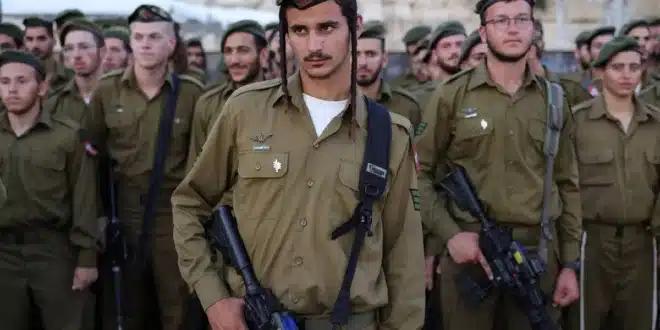As Israel’s war in Gaza stretches on, the country’s top military official has made it clear that combat operations will persist unless stalled negotiations deliver a breakthrough on the hostage front. Lieutenant General Eyal Zamir, Chief of Staff of the Israel Defense Forces (IDF), delivered a stark message during a visit to troops in Gaza on Friday, warning that fighting will not ease without progress in securing the release of hostages still held in the embattled enclave.
Military Pressure Tied to Hostage Talks
In a statement released by the military, Zamir expressed hope that the coming days would clarify the prospects of an agreement. “I estimate that in the coming days we will know whether we can reach an agreement for the release of our hostages,” he said. “If not, the combat will continue without rest.”
His comments were delivered during an address to Israeli commanders stationed inside Gaza, footage of which was later made public. The general’s words underscore the military’s readiness to escalate operations should diplomatic efforts remain stalled.
The hostage issue remains a central and painful point in the conflict. According to the Israeli military, 251 people were abducted during Hamas’s coordinated cross-border attack in October 2023. Of those, 49 are still believed to be held in Gaza, including 27 confirmed dead. Two videos released this week by Palestinian militant groups showed visibly frail hostages, intensifying calls within Israel to accelerate negotiations.
Talks Stalled, Pressure Mounts
Efforts to reach a ceasefire and secure the hostages’ release—mediated by the United States, Qatar, and Egypt—collapsed last month. The breakdown has fueled both public and political frustration, especially among the families of those still in captivity. Many are urging the Israeli government to return to the negotiating table, even as some voices push for heightened military action in the absence of a deal.
International concern has also grown. As the war enters its 22nd month, humanitarian agencies are sounding the alarm over a looming famine in Gaza. Access to food and essential aid remains severely restricted, with agencies pointing to Israeli-imposed barriers as a primary cause.
Zamir Denies Starvation Allegations
General Zamir, however, pushed back forcefully against such claims. He dismissed the reports of deliberate starvation as “false accusations” and accused critics of engaging in a politically motivated campaign to damage the military’s reputation.
“The current campaign of false accusations of intentional starvation is a deliberate, timed, and deceitful attempt to accuse the IDF, a moral army, of war crimes,” Zamir stated. He laid blame for civilian suffering squarely on Hamas, saying the militant group is responsible for the dire conditions in Gaza.
Mounting Toll on Both Sides
The toll of the conflict continues to climb. According to the health ministry in Gaza, which is operated by Hamas and regarded by the United Nations as a generally credible source, at least 60,332 Palestinians have been killed in the Israeli campaign—most of them civilians. On the Israeli side, official figures report that Hamas’s October 2023 assault killed 1,219 people, largely civilians. Since Israel began its ground invasion, 898 Israeli soldiers have died.
With no end to the conflict in sight, and the humanitarian crisis deepening, the next phase appears to hinge on whether back-channel talks can resume—and deliver results. For now, Israel’s military remains on a war footing, and its leadership is signaling that the fighting will persist until hostages come home or until diplomacy breaks the deadlock.


